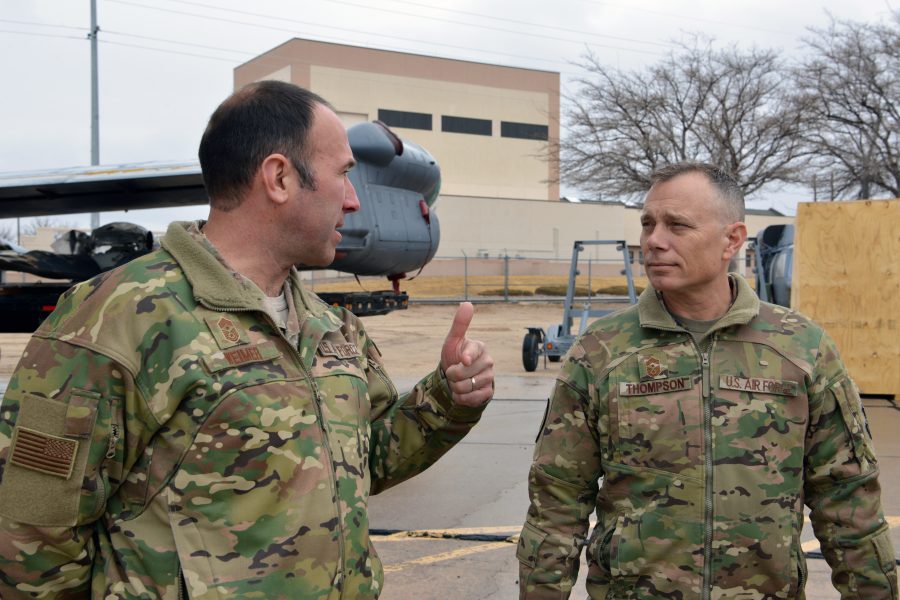Chief Master Sgt. Erik C. Thompson, Air Education and Training Command’s newest command chief, doesn’t want to reinvent the way the command does business.
Instead, he wants to back up its already innovative educators—whom he said are driving training change on a daily basis—in their efforts to reach AETC’s Airmen.
“Our great teaching professionals … are coming up with great and innovative ways for us to reach every Airman, and I want to continue to enforce their ability to do that on a day in and day out basis,” he said during a recent interview with Air Force Magazine. “Really, … I’m the old dog that you’re not looking to … for new tricks. My job is to make sure that the folks that can do the new tricks have the tools, the time, and the resources to do that and make our Airmen better every day.”
Thompson said his biggest priorities in his new position are:
- Keep recruiting, training, and educating “exceptional Airmen and space professionals” for USAF and the Space Force
- Give commanders the best possible warfighters
- Ensure that the command looks out for its Airmen—an action he referred to as “valuing force generation”
Combating Climate Issues
Thompson, who served as 19th Air Force’s command chief master sergeant prior to assuming his current role at AETC, said he’s never seen USAF take the issue of combating sexism and related climate issues within undergraduate pilot training as seriously as it is now.
But, he said, the service can’t afford to let up.
“It’s not something that we’ve beaten,” he said. “It, quite frankly, is something that we have to continue to work on extremely hard every single day.”
An Aug. 3 report by Air Force Times detailed incidences of sexism that erupted during undergraduate pilot training at 19th Air Force’s 47th Flying Training Wing in 2017 and 2018, a resulting commander-directed investigation, and efforts by the NAF and AETC to remedy these climate issues since.
Thompson praised steps that 19AF took in the past two years—such as widening commanders’ and instructors’ toolboxes, placing “more experienced leaders in some of the positions of authority that have the ability to help assist in those issues,” and giving students more ways to alert their chain of command to concerns. He said such actions are proactive things AETC and the rest of the Air Force can do to cultivate a healthier culture overall.
“Sadly, that shouldn’t be revolutionary,” he said. “That should be something that we do as a baseline every day for all of our Airmen.”
Thompson said USAF must “be hypervigilant” about safeguarding Airmen’s “right to serve in an environment free from” this kind of injustice.
“We have to be always listening about that and more importantly, we have to be willing to act on that,” he said.
